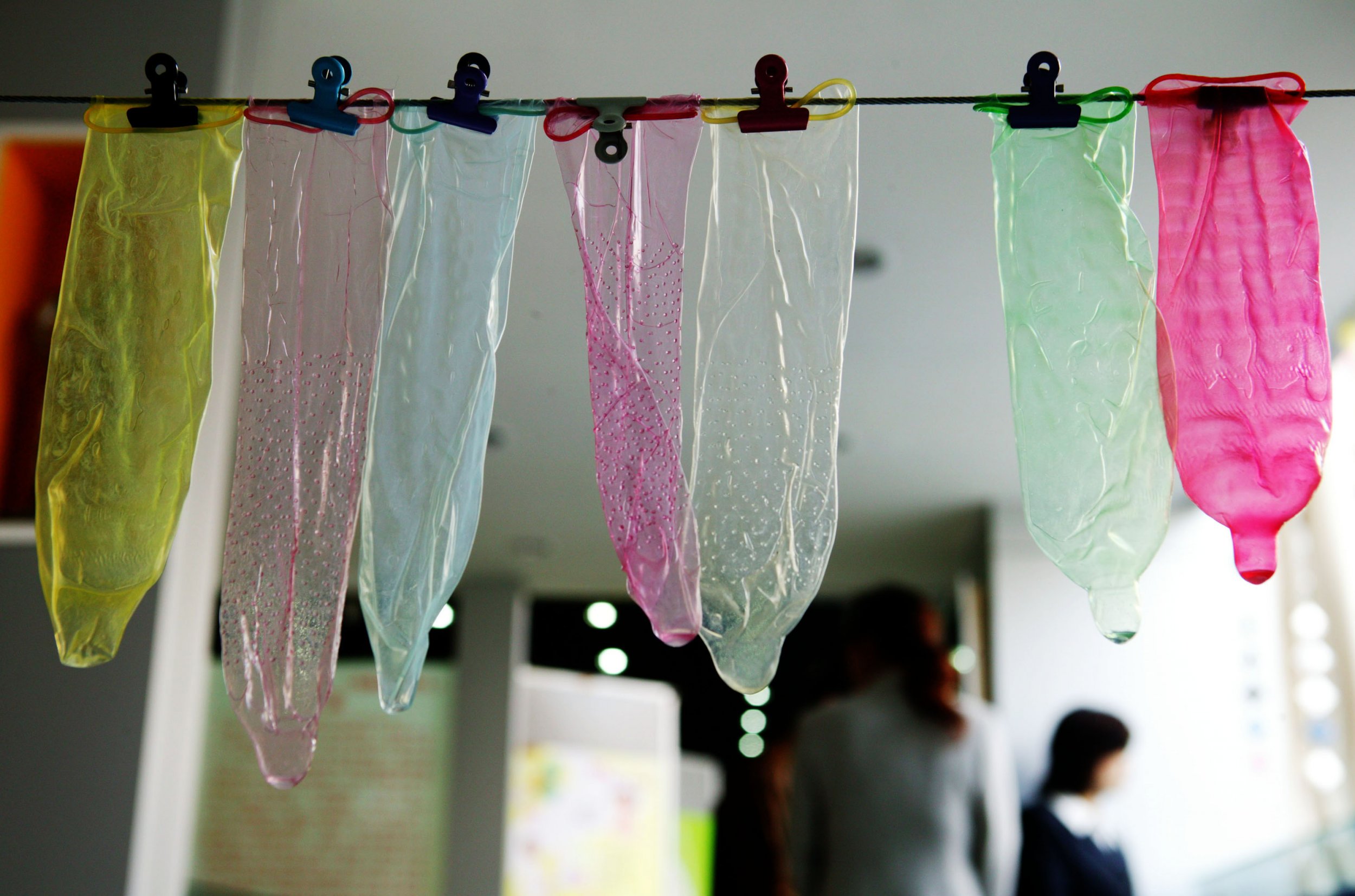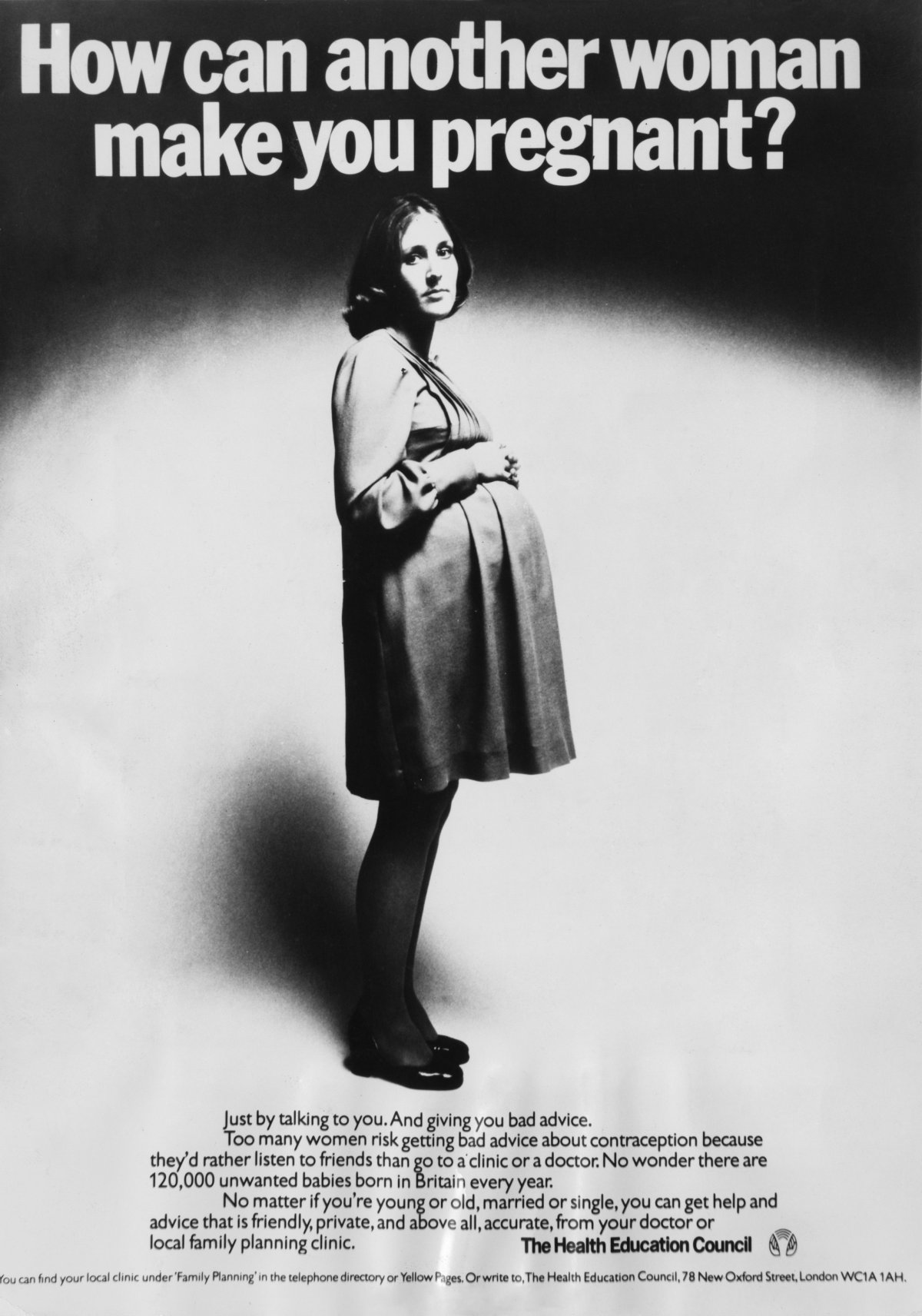
When Hannah Harp took her 6th-grade sex education course in upstate New York, she learned about sex at its most traditional form—it was for reproduction, her teacher told her, and was supposed to involve a penis.
"Part of the problem for me wasn't what's left out but what was emphasized," Harp said of her sex education experience, which was focused entirely on heterosexual relationships. "We were taught 'Sex is about penetration and penetration only and if it isn't about that, then it isn't sex.'"
Harp is a queer woman, who, like many other queer women, wasn't ever taught formally about how to have safe sex with another woman. According to a study out of the Journal of Adolescent Health that came out in December 2017, most queer girls don't know they can get sexually transmitted infections from other girls, "because sex education is mostly designed for their straight peers."
And even the more progressive sex education programs focus on penetration to a fault. In some states, pre-teens are taught how to slide a condom over a phallic vegetable but don't know dental dams exist, or why you should use one.
Inclusive sex ed not just heterosexual sex ed should be taught at all schools. Queer kids should be able to know how to stay safe too. https://t.co/iyPisA043Y
— Decolonially Queer (@decolonialqueer) July 15, 2017
"Sex education is very male-focused and hetero-centric," Cathy Sakimura, the deputy director of the National Center for Lesbian Rights, told Newsweek. "And that fails queer women in yet another way."
Sakimura said sex education in the U.S. is inadequate for everyone—heterosexual men and women, queer men, and especially for transgender people. But the silence on any kind of sex that doesn't involve male genitalia amplifies the systems' failures for queer women.
"The vast majority of sex education doesn't address anything that directly relates to queer women in their same-sex relationships," Sakimura said. "Even the ones that aren't abstinence-only are very hetero-centric."
Abstinence-only-until-marriage sex education forces educators to teach students about sex in a way that leads to more accidental pregnancies and STIs than more progressive sex education courses. These programs halted briefly in 2010, but were recently reinstated, with funding for abstinence-only programs increasing threefold from 2015 to 2017, according to Planned Parenthood. And the current administration is friendly toward this kind of education—President Donald Trump recently named Valerie Huber, an advocate for abstinence-only education, to a post at the Department of Health and Human Services.
Even more progressive courses focus on heterosexual sex, and, if they veer off course, they lend information towards gay and bisexual men rather than women. The majority of people polled by Bespoke Surgical, an LGBT health care group, said their sex education classes didn't discuss same-sex relationships or intercourse at all.
"Studies show that young queer women have higher rates of teen pregnancy and STI's," Sakimura said, adding that it is largely due to the rejection and trauma young queer women face. "And hetero-centric sex ed goes into that."

The regions where students reported that their sex education didn't discuss same-sex relationships, in the midwest and southern states, are the same regions where STD rates spike among women, according to the Centers for Disease Control. The CDC tracks STD rates among women, men and gay men but has no data specifically for lesbian women or bisexual men or women.
Jaime Grant, the executive director of the LGBT-rights group PFLAG National, a Ph.D. in women, gender and sexual studies, and a queer woman raising two children, one of whom is bisexual, has been working in sex and sexuality education for a decade.
"Sex ed is failing everyone," Grant told Newsweek. "Penis and vagina sex is where everything [in sexual education] is orchestrated. It doesn't give [queer people] much of a place to start or even think about ourselves or contemplate our own desires."
Grant said that unless queer women have a community where they feel it's safe to talk about themselves, they are forced to explore desire without much support for their own experience—this can lead to shame and violence, especially for queer people of color or people with disabilities.
"Sex can be a wide variety of things," Harp said of her overtly hetero-centric sex ed. "In an ideal world we'd be able to talk about many different aspects of a healthy sexuality: demisexual, asexual... but even if we could get sex ed to include 'sex is not just penetration' we could open up the doors for students to think ahead."
That just isn't an experience queer women have. And beyond school sex education, most queer people were never asked by their physician about their sexual orientation.
Since queer women aren't learning about safe sex from their courses or doctors, they have to learn about safe sex in other places.
"I had feelings for women much before I even knew what that meant," Harp said. "So I just started googling things. I would read books that had queer sex scenes in them … I just immersed myself in queerness."
LGBT people are twice as likely as straight people to get the majority of their sex education from TV or movies.
"I do not think young queer women understand how to have safe sex," F0XY, a woman who teaches safe sex for queer women on YouTube told Broadly. "I don't think that older women know how to have safe sex. It's not in the media, not even in lesbian programming. Probably because we're conditioned to create content that appeals the male gaze."
This is one reason these communities are at a higher risk, needing attention and education. A study by NCBI shows that bisexual and lesbian young women face higher sexual and reproductive health risks than heterosexual women, are sexually active at younger ages than their peers, and are likely to have more sexual partners than their heterosexual peers. They are also more likely to be assaulted or raped.
Safety for queer women is more than STIs and dental dams: it's violence, another issue that isn't talked about in the average sexual education course.
"Not very many queer women are talking about safe sex in terms of barriers," like dental dams, Grant said. "Many many queer women are talking about abuse."
According to the Human Rights Campaign, "44 percent of lesbians and 61 percent of bisexual women experience rape, physical violence, or stalking by an intimate partner, compared to 35 percent of heterosexual women."
"For women, to say we want to put ourselves in the center of our sexuality is a revolutionary idea sadly," Grant said.
Uncommon Knowledge
Newsweek is committed to challenging conventional wisdom and finding connections in the search for common ground.
Newsweek is committed to challenging conventional wisdom and finding connections in the search for common ground.
About the writer
Christianna Silva is a staff writer for Newsweek covering civil rights with a focus on LGBT issues and police brutality. ... Read more
To read how Newsweek uses AI as a newsroom tool, Click here.








